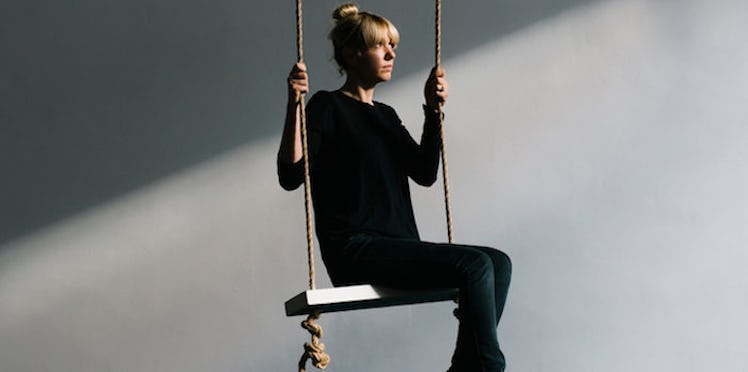
4 Ways Your Life Will Improve When You Stop Being Materialistic
Materialism and overconsumption are rife within modern society, but those things aren't making us happy.
Having too much stuff is not only causing stuffocation, but also keeping us in a bondage that we're itching to free ourselves from.
As a society, we are beginning to grasp the lie that has been sold to us through advertising and the media.
We are moving toward challenging the status quo, the "All American Dream," and realizing that happiness doesn't lie in the mass of stuff we've claimed but in the freedom of pursuing adventure. Adventure, ambition and social-awareness make up our new pursuit of happiness.
Adventure, ambition and social-awareness make up our new pursuit of happiness.
Having too much has become synonymous with burden. In fact, there has been a recent move toward examining the overly decadent and indulgent lifestyles that some people flaunt.
As Millennials, we are much more in tune with the needs of the majority and we are aware that we cannot turn a blind eye to excess. It almost feels inauthentic to live a life any other way.
Here is why you should adapt a minimalist philosophy to really get the most out of life.
1. You will be less stressed.
It was the futurist and author James Wallman who first coined the term "stuffocation." Stuffocation, according to Wallman, is a sense of anxiety attached to a feeling of being burdened by belongings. Again, it goes back to a feeling of being tied down and restricted by the stuff we have claimed. It's something we can all relate to. The feelings range from worrying about the chance we could lose something valuable to the pathological state of hoarding. It's this worry of loss that prevents us from being free.
Stuffocation is something we can all relate to. The feelings range from worrying about the chance we could lose something valuable to the pathological state of hoarding. It's this worry of loss that prevents us from being free.
2. You will literally have fewer burdens.
I first realized the need to let go as a young backpacker heeding my adventurous spirit and heading down the east coast of Australia. With the sheer volume of products and clothes, traveling was anything but light. Returning to London a couple of years later meant that I needed to downsize my life and fit everything I had into a suitcase. Having too much stuff would simply hinder my plans.
It was the feeling of lightness and freedom that I wanted to keep hold of. I knew this was the start of a minimalist me.
Fast forward to almost a decade later and I swear by the minimalist approach. It's not surprising really; I've moved around a lot. I have spent the majority of my 20s in London, moving around different parts of the vast city. It made sense to keep things light and stay that way. In fact, it's such a relief to have let go. I now see material goods as things serving a practical purpose that I want to get as much value out of as possible. If something doesn't have a value or purpose for me anymore, then it can be used by someone else. It's such a freeing place to be at.
3. You will value relationships more.
I no longer see minimalism as counter-culture. In fact, there's a generation of us that see it as our future. Simplicity is freeing; it allows for adventure.
According to minimalists Joshua Fields Millburn and Ryan Nicodemus, minimalism is not a radical lifestyle. In fact, the key attributions are simply to question the purpose and value of your possessions, to refrain from excess and not to attach meaning to your stuff. It's simple, really. If something does not have purpose, then get rid of it. Give it to someone who will use it. Remember: Things can be replaced, people can't. Developing a social conscious that focuses on authentic happiness is a better place to start living.
Remember: Things can be replaced, people can't. Developing a social conscious that focuses on authentic happiness is a better place to start living. Valuing people and not possessions is the way forward.
4. You will be happier and healthier.
It isn't just us Millennials who are questioning the value and purpose of our possessions. Psychologists, and especially those who study happiness, have found that investing in experiences over things boosts our feelings of well-being. A study in 2009 by San Francisco State University confirmed that experiences, such as those that catered to our need for social connection, increased feelings of wellness.
Don't have much money? Don't worry! Feelings of satisfaction can be felt even from a contribution of a couple of dollars and sharing a home-cooked meal.